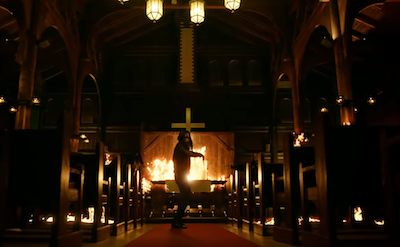Direction: Roy Andersson
Country: Sweden
The singularity of Roy Andersson’s works has been casting a spell on viewers since the early 1970’s. Acclaimed works such as A Swedish Love Story (1970), Songs From the Second Floor (2000), You The Living (2007) and A Pigeon Sat on a Branch Reflecting on Existence (2014) have now the company of About Endlessness, his latest meditation on the human nature, which tells more about life than you might think.
The film, sketchy, simple and sublime, is structured with various vignettes - an envious man gets irritated because a former school mate doesn’t salute him; a priest who lost his faith keeps dreaming with his own crucifixion; two lovers fly over the city of Cologne in ruins; in a fish market, a jealous man slaps the woman he loves; a stressed out dentist abandons work as a patient screams with pain; in a coffee shop, a hopeful man asks all the present: ‘isn’t all this fantastic?’.
These are some of the stories that the 77-year-old Swedish director prepared for us. They are made of encounters, lost people, uncomfortable waits, surrealism, nightmares, death, and trivial incidents. Attached to these elements we have feelings of regret, sadness, joy, resentment, anguish, all wrapped in a thin layer of sarcasm. It’s hard to imagine any other director depicting life and human nature this way, where there are parts of disarming sincerity counterbalanced by a nearly absurdist humor.
The cascading imagery evokes deep feelings and some segments are deepened with classical and jazz music. It's a powerful film, equal parts defeatist and exultant.












































